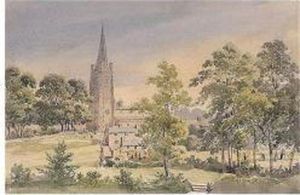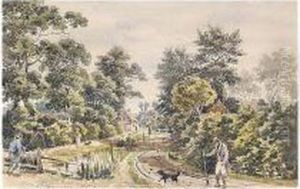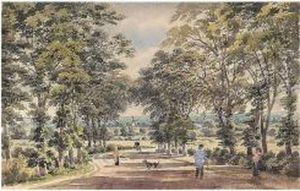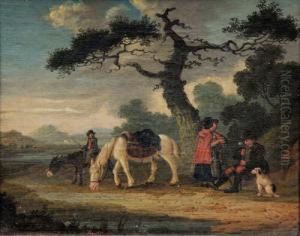Edward Rudge Paintings
Edward Rudge was an English botanist and antiquary, known primarily for his work in the field of botany and his contributions to the understanding of British flora. Born in 1792, Rudge came from a family with interests in both botany and antiquity, which likely influenced his future pursuits.
Rudge's most notable contribution to botany was his series of folio volumes titled 'Plantarum Guianæ rariorum icones et descriptiones hactenus ineditæ' (Illustrations and descriptions of rare plants of Guiana, previously unpublished), which he published between 1805 and 1807. This work included descriptions and illustrations of the plants he collected in British Guiana (now Guyana), reflecting the period's keen interest in exploring and documenting the natural world, particularly in the newly accessible territories of the British Empire.
Aside from his botanical interests, Rudge was also active in the field of antiquities. He took an interest in the history and archaeology of his native England and was known for his studies of ancient Roman sites in Britain. His work in this area contributed to the broader understanding of Britain's ancient past and was part of the 19th-century movement that sought to systematically study and preserve the nation's heritage.
Despite his contributions, Edward Rudge is not as widely remembered as some of his contemporaries in the field of botany or antiquities. This may be due to the fact that he did not have an extensive published body of work, or because his professional life was overshadowed by other figures of the time who made more significant impacts on these fields. Nevertheless, his efforts in cataloging rare plants and his engagement with British antiquities mark him as a figure of interest within the historical context of early 19th-century British science and history.
Edward Rudge passed away in 1861, leaving behind a legacy that would be of particular interest to those studying the intersection of botany and antiquarian pursuits during his lifetime.



